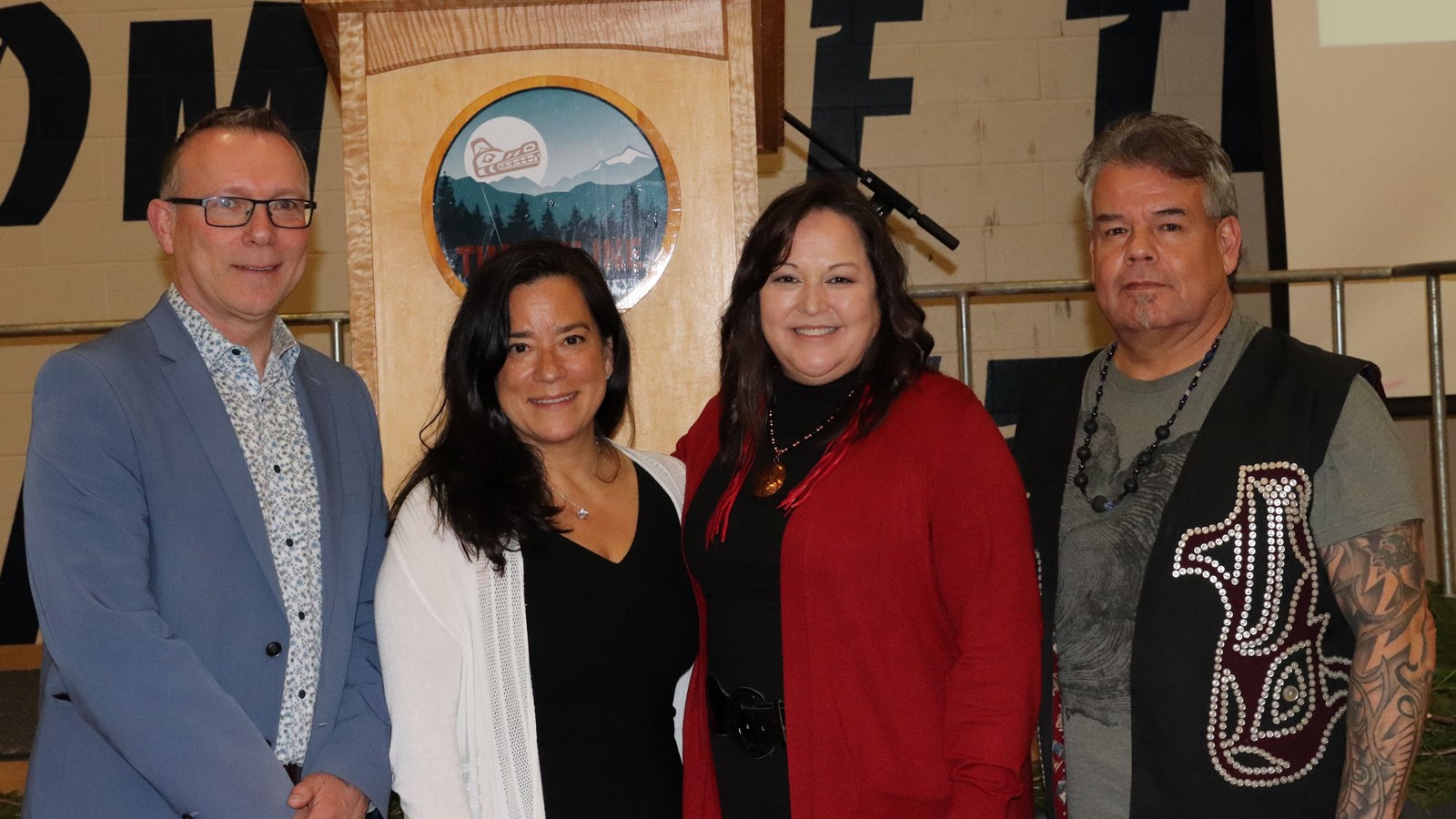Educational Story Work: Youth Stories from Identity to Achievement

Reflections from Our Indigenous-Focused Professional Development Day
On March 31, while students enjoyed a slightly extended spring break, staff from across our district came together for our annual Indigenous-focused professional development day, dedicated to educational story work which allows the district to focus on the narratives from various perspectives, deepening our understanding and shifting our practice to directly influence student achievement and actions toward reconciliation. The day featured two powerful speakers: The Honourable Jody Wilson-Raybould and Carolyn Roberts, and opened with a welcome to the territory from Greg Henderson of the Wei Wai Kum First Nation. All speakers shared stories and lessons that challenged and inspired us on how to continue to build inclusive, supportive learning environments for all students.
The Honourable Jody Wilson-Raybould, a member of the We Wai Kai Nation, Canada’s first Indigenous Minister of Justice and Attorney General, former Minister of Veteran Affairs, and former member of Parliament for Vancouver-Granville spoke about true reconciliation and how to be a force for change.
She shared her personal leadership journey – one shaped by protocol and cultural teachings, and political experience. Drawing on wisdom passed down from her grandmother, she spoke to the personal responsibility that was instilled in her to step into leadership roles.
“It’s been our role to be more and more visible, immovable and ever present,” she said. “To be bold, heard and seen, and to directly challenge those who fail to see you in all sorts of ways and in different environments.”
Wilson-Raybould reminded us that real reconciliation requires more than symbolic gestures. While actions like lowering the flag or wearing orange shirts have value, they are not enough on their own. “The symbolic and performative are the easiest to do and they are the least impactful,” she said. “We need to do better, you and me, us together.”
She challenged us to be leaders in reconciliation by breaking down barriers between Indigenous and non-Indigenous people, telling shared stories, and lifting up Indigenous voices – especially those of students in our schools. She reminded us that leadership means helping make things that are often hidden more visible, so that real change can happen.
The day’s second speaker, Carolyn Roberts, an Indigenous academic and faculty lecturer in the teacher education department of the University of British Columbia, encouraged us to critically look at the colonial foundations of our education system and to seek out the perspectives that have been historically silenced.
Roberts encouraged us to think about how we teach history and about culture, highlighting the importance of teaching the full context behind cultural practices—such as Bannock and its origins—and not stopping at surface-level representations.
She also challenged us to think about what classroom practices help support reconciliation and how we can meaningfully incorporate Indigenous worldviews and histories (a priority of the district’s strategic plan).
The day was focused on how we can create learning spaces that are welcoming and full of experiences that are connected to students' identities. For all students, this means feeling seen, safe, valued and acknowledged at school, as well as recognizing and celebrating each person’s unique identity and background.
This is the heart of our district’s values—that respectful relationships are key to learning, and that every student brings something important to our classrooms.
This day of learning reminded us that reconciliation is not a single act, but an ongoing journey. We are thankful to our speakers for their wisdom, honesty and leadership. We remain committed to ensuring reconciliation is woven into the fabric of our schools, classrooms, and relationships.









